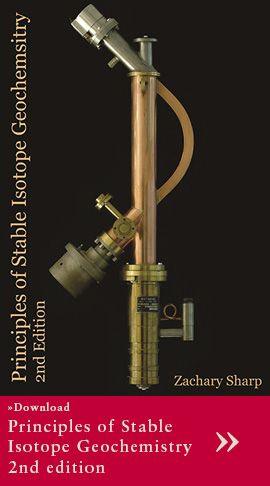CSI Brown Bag Seminar
Spring 2026 Schedule
The Spring 2026 CSI Seminar will be held in PAIS 1010 on Mondays from noon - 1pm
January 26th - Organizational meeting to determine speaker schedule
February 2nd - Catt Peshek (EPS): Investigating the oxygen isotope composition of soil water and the transient effects of evaporation on the Holocene soil carbonate record
February 9th - Zach Sharp (EPS): Conditions of Emerging Life
February 16th - Seth Newsome (Bio): The shifting baseline of northern fur seal ecology in the northeast Pacific Ocean
February 23rd - Emily Milton (Smithsonian): High-Altitude, Low Oxygen: Re-evaluating Mobility Studies in Archaeology
Rest of schedule coming soon!
Training Programs and Courses
- Graduate Student Assistantships: 2 graduate assistantships per semester (one in Earth & Planetary Sciences and another in Biology) are offered to train graduate students in the daily operation of instrumentation, instrument maintenance, QA/QC protocols and data reduction.
- Courses: targeted to motivated undergraduates, graduates and postdoctoral researchers interested in learning more about the application of stable isotope analysis in the planetary, life and medical sciences. The laboratory experience will include full access and training on how to operate and maintain isotope ratio mass spectrometers.
- Stable Isotope Geochemistry (EPS 405): The aim of this course is to provide students with a basic understanding of stable isotope geochemistry, and it’s application in the geosciences. In particular, lectures will focus on applications to paleoclimate reconstruction, metamorphic and igneous petrology, atmospheric science and meteoritics.
- Elemental Ecology (BIO 402/502): This aim of this course is to provide students with a basic understanding of the application of stable isotope measurements in ecology and environmental science. Lectures will address the theory underlying the application of stable isotopes at natural abundance levels as tracers and integrators of important ecological and environmental processes.
- Class website: http://sethnewsome.org/ee.html
- Stable Isotope Seminar (ANTH 502, BIOL 402/502, EPS 400): The CSI brown bag seminar is offered as a one credit course in the Anthropology, Biology, and Earth and Planetary Sciences departments.


